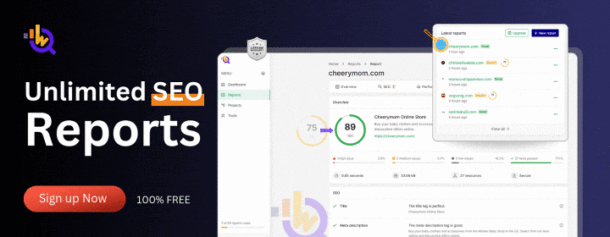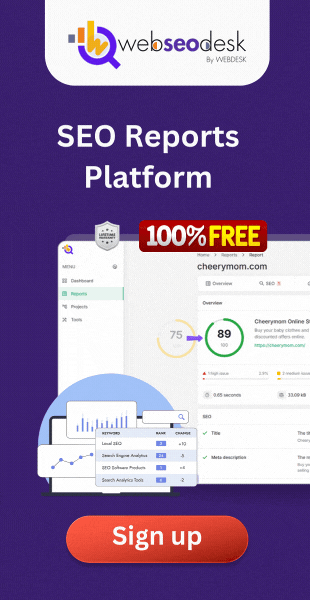Search Engine Optimization (SEO) is not an exception since artificial intelligence (AI) is fast changing several sectors. AI is changing how companies approach SEO with its capacity to improve user experience and examine enormous volumes of data. AI is more important in improving digital marketing plans and optimizing websites as search engines develop and grow more complex. The effect of artificial intelligence on SEO strategy and how companies could adjust to remain competitive is investigated in this paper.
- AI in Search Engines: SEO Gets a Change of Direction
AI’s most major influence on SEO strategy is its inclusion in search engines like Google. To more precisely grasp and process search queries, search algorithms—including Google’s RankBrain and BERT—rely mostly on artificial intelligence and machine learning These artificial intelligence-driven algorithms interpret natural language and grasp user intent, enhancing the relevance of search results.
By analyzing billions of web pages to identify which ones most likely offer pertinent answers, RankBrain, for instance, helps Google grasp difficult search queries. This change toward understanding context and meaning over exact keyword matches means that companies must produce more natural, user-friendly material addressing particular user needs rather than concentrating just on keyword stuffing.
- Improved AI Tool Keyword Research
Keyword research used to be done by hand-sorting through lists of keywords to identify the most pertinent and high-traffic terms. But tools driven by artificial intelligence have sped up and improved keyword searches. Using machine learning to offer smarter keyword recommendations considering search volume, competition, and user behavior, AI-based tools including SEMrush, Ahrefs, and Google’s Keyword Planner are present.
Ideal for companies aiming at niche markets, AI-driven keyword tools can also find long-tail keywords with less competition. Using these cutting-edge artificial intelligence tools helps companies create a more all-encompassing keyword plan that generates pertinent traffic and raises SEO results.
- Content Creation and Enhancement Any SEO plan revolves on content; thus, artificial intelligence is transforming the way companies produce and maximize it. Content tools driven by artificial intelligence, such as Jasper and Copy.ai, enable companies to quickly produce excellent materials. These tools create content in line with SEO best standards by using machine learning models to grasp language trends.
Furthermore, assisting with content optimization is artificial intelligence. Tools like Clearscope and SurferSEO analyze top-ranking pages for specific keywords and suggest ways to improve content, including keyword density, readability, and structure. This enables organizations to generate content that not only ranks higher but also gives better value to users by being more informative and entertaining.
- AI and User Experience (UX) Optimization
User experience (UX) is a significant aspect in SEO, and AI plays an essential part in optimizing it. Search engines, particularly Google, incorporate UX signals when ranking webpages. AI tools enable organizations to assess user activity on their websites, such as time spent on pages, bounce rates, and click-through rates. By understanding how consumers engage with information, organizations may make data-driven decisions to optimize site performance.
For example, AI-driven technologies like Hotjar and Crazy Egg provide heatmaps that illustrate where people click, scroll, and interact with website items. By adjusting website design based on these findings, organizations may improve UX, reduce bounce rates, and eventually boost SEO ranks.
- AI-Powered Voice Search Optimization
Rapidly becoming more popular is voice search; hence, optimizing for it is becoming ever more crucial for SEO. Voice assistants driven by artificial intelligence—like Google Assistant, Siri, and Alexa—are altering information-search behavior. Users are speaking natural language searches instead of keywords entered into a search bar; hence, SEO techniques must change.
AI helps firms optimize for voice search by understanding how consumers word their requests audibly. Voice search queries are frequently lengthier and more conversational; hence, companies should concentrate on long-tail keywords and natural language processing (NLP). AI-driven technologies can also assist your business in spotting typical voice search questions and modifying your material to offer direct, succinct responses.
- AI for Outreach and Link Building
SEO still depends much on link creation, and artificial intelligence is helping this process run more effectively. Manual website backlink outreach—which might be time-consuming and challenging to scale—was part of traditional link-building techniques. By spotting possible backlink prospects and delivering customized emails to website owners, AI-powered platforms like Pitchbox and Linkody automatically expedite the outreach process.
AI tools may also assist in examining rival backlinks in order to find fresh link-building prospects. Using these tools helps companies create more focused and successful link-building plans, hence enhancing domain authority and SEO results.
- Artificial Intelligence for Reporting and SEO Analytics
AI is automating data processing and offering actionable insights, hence improving SEO analytics and reporting. While AI-powered solutions can handle enormous volumes of data in real-time and produce clear, understandable results, traditional SEO analytics tools need manual data entry and interpretation.
Using machine learning algorithms, AI-driven analytics systems like Google Analytics 4 and HubSpot spot trends and patterns in user behavior, traffic sources, and conversion rates. These realizations enable companies to modify their approach and get better outcomes by guiding their decisions on their SEO plan.
- Personalized Search Experience AI
In SEO, personalizing is increasingly crucial, and artificial intelligence leads this change. Using artificial intelligence, search engines adapt search results depending on historical activity, geography, and personal inclination. SEO plans must thus take into account how various consumers engage with material and customize the experience to fit their particular demands.
By enabling companies to produce tailored information and recommendations for consumers, artificial intelligence can also help to increase interaction and conversion rates. AI-driven content personalizing systems, for instance, can suggest goods, blog entries, or services depending on past website interactions of a user.
At last
The SEO scene is changing under artificial intelligence; hence, companies that use tools and approaches led by AI will have a competitive edge. From user experience optimization and voice search to keyword research and content development, artificial intelligence is changing how companies approach SEO. Using artificial intelligence in your SEO plan will help your website run better, increase user involvement, and raise search engine result page rankings. Long-term SEO performance depends on keeping ahead of the curve and implementing fresh AI solutions as artificial intelligence develops.












0 Comments